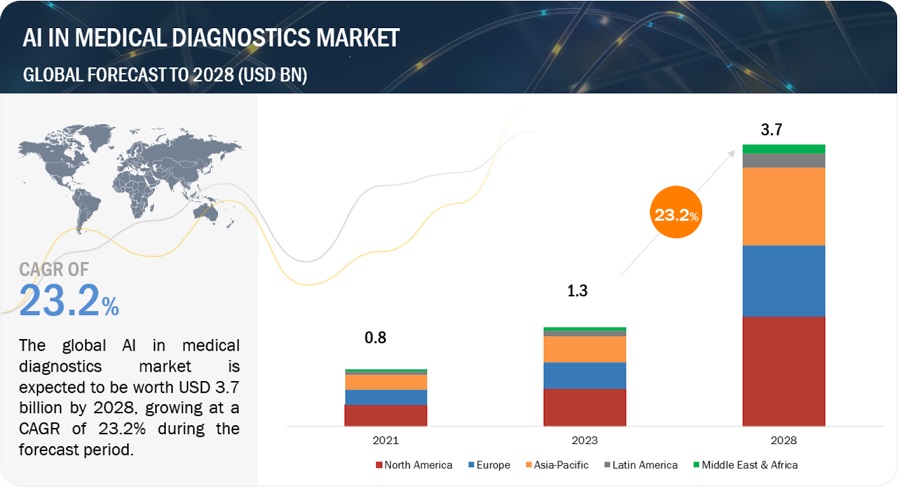views

AI and radiomics, which are being applied to X-ray and CT scans as advanced imaging tools in the detection and follow-up of COVID-19, have been able to diagnose the presence of the infection. This is because AI algorithms and radiomics used for chest X-rays can help undertake massive screening programs. For instance, Zhongnan Hospital (China) uses AI to interpret CT scans and identify COVID-19 symptoms when human radiologists are unavailable. Similarly, the Tampa General Hospital (Florida, US) uses an AI-driven technology to screen individuals for COVID-19 before they interact with the hospital staff and other patients.
Pandemics such as COVID-19 require investments for additional manpower, equipment, consumables, and other resources to ensure 100% preparedness for safety in hospitals and, if needed, eventual treatment of patients. The COVID-19 pandemic is an accelerator for AI technology by creating opportunities for leveraging these tools for healthcare advancement.
The growing awareness of the benefits offered by AI techniques and their wide application areas has led to the increased adoption of these products and services in the healthcare market. Various leading companies in the healthcare market are entering into partnerships and collaborations with leading AI technology providers to come up with innovative AI-based solutions for applications in healthcare.
Download PDF Brochure @ https://www.marketsandmarkets.com/pdfdownloadNew.asp?id=22519734
Due to the growing demand for novel AI-based techniques in the medical diagnostics market, such developments are helping companies gain momentum in terms of developing advanced products and tools.
Currently, many healthcare professionals have doubts about the capabilities of AI solutions in terms of accurately diagnosing patient conditions. Considering this, it is challenging to convince providers that AI-based solutions are cost-effective, efficient, and safe solutions that offer convenience to doctors as well as better care for patients.
However, healthcare providers are increasingly accepting the potential benefits of AI-based solutions and the spectrum of applications they serve. Hence, there is a possibility that in the coming years, doctors and radiologists will show more inclination toward AI-based technologies in healthcare.

According to the National Institute of Health and Family Welfare (NIHFW), in India, it is estimated that there are 2 to 2.5 million cancer patients at any given point of time; every year, about 0.7 million new cases are reported in the country. Furthermore, the healthcare sectors in emerging economies, such as India and China, are rapidly growing, resulting in the introduction of new medical technologies with a special focus on advanced imaging equipment.
However, the APAC market is projected to register the highest CAGR of 53.2% during the forecast period, primarily due to the growth strategies adopted by companies in emerging markets, improved medical diagnostic infrastructure, increasing geriatric population, rising prevalence of cancer, favorable government initiatives for AI in healthcare, and the increasing number of COVID-19 positive patients.
Key Market Players
Some of the prominent players operating in the AI in medical diagnostics market are Microsoft Corporation (US), NVIDIA (US), IBM (US), Intel (US), Siemens Healthineers (Germany), GE Healthcare (US), Digital Diagnostics (US), Xilinx (US), InformAI (US), Enlitic (US), Day Zero Diagnostics (US), Aidence (Netherlands), Butterfly Network, Inc. (US), Prognos (US), Zebra Medical Vision (Israel), Viz.ai (US), Quibin (Spain), Qure.ai (India), Therapixel (France), and HeartFlow (US).












